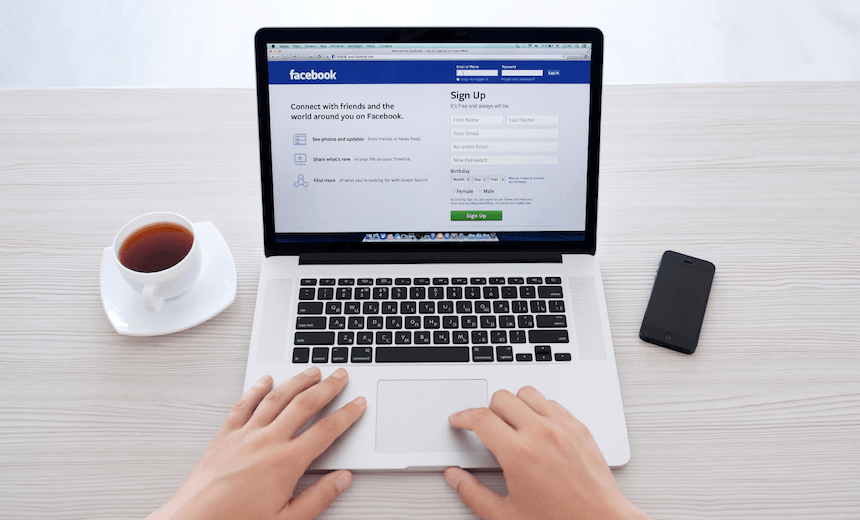What do you do when someone you’re close to on Facebook – or someone you hardly know at all – is talking about suicide or exhibiting signs of acute emotional distress? Kyle MacDonald talks to the head of Facebook’s ‘Compassion Team’ to find out how you can help.
We Kiwis love Facebook. As a nation we’re among the highest users in the world, with around 80% of New Zealanders visiting regularly. Facebook is the third most visited site in New Zealand after google.co.nz and google.com.
But does Facebook care about us as much as we care about it? Should it?
You might be surprised to learn that within the organisational juggernaut that is Facebook there is something called a “Compassion Team”. Recently psychologist Dr. Jennifer Guadagno, the team’s head, was in New Zealand for the Netsafe Conference.
So what does the Compassion Team actually do?
“Our mission is to support people through sensitive life moments and enhance well-being,” says Dr Guadagno. “Our team is really focused on understanding those more difficult, sensitive life moments, how people are experiencing them, how they show up on Facebook and how we can support people through them.”
Sensitive life moments like relationship break-ups, bullying, self harm and experiencing suicidal ideation.
The thing is, the Compassion Team doesn’t rely on an algorithm. Facebook doesn’t use a line of code to figure out if people are emotionally distressed. They’re relying on all of us.
Facebook’s mental health support features are located within actions tab under the little drop down arrow on the top right of each post. Click on ‘report post”, select “I think it shouldn’t be on Facebook” and then “more options”. Once you’ve indicated that a post you’re concerned about contains self harm or suicide, you can choose what type of help to offer.
But whether it’s in real life or online, people often don’t know what to say.
“We did a lot of research with people in the lived experience community – people who have had past experiences with suicide ideation or attempts,” says Dr Guadagno.
“On both sides, we heard that same thing: people are worried about saying the wrong thing, not really sure how to go about it but want to do something.
“We suggest a text for them as a way to start the conversation, and they can edit that, add their own [words]. They can completely delete it and put what they want to put or just as it is as a way to start that conversation.”
It doesn’t end there. If you don’t want to reach out, you can anonymously flag the post and Facebook will let the person know someone is concerned. The user will also be sent links and locally relevant services, including helplines, that they can utilise. At times of acute risk, Facebook employees have even accessed local crisis services and sent urgent medical help.
Well intentioned? Without a doubt. Well researched? No question, as Jennifer herself said pretty much everything at Facebook is “data driven.”
But should we be relying on technology like this? Or should we be doing more here in New Zealand, given our relentlessly high suicide rate?
Mike King thinks so. In 2016 Mike spoke to over a 140,000 New Zealanders about emotional health as part of his suicide prevention work with the Key to Life Charitable Trust. From his point of view, there is little doubt we need to be utilising every tool we can.
“Arming people with tools to talk is one of the crucial mechanisms in this day and age. Not only for the person you’re trying to help, but also for the safety of the person trying to reach out. Really simple things, like not saying ‘What’s wrong?’ and instead saying ‘Are you OK?’ or ‘What’s going on?’ and reinforcing to people that you care.”
In many ways this is the point. We can debate whether Facebook cares enough, and while there is little doubt that this initiative is one that should be applauded, it isn’t up to Facebook to care.
Technology can’t replace real human connection – ultimately it’s up to each and every one of us to say something in whatever way we can, to show we care and to not let our friends suffer alone.
But anything that helps and encourages that has to be a good idea.
Kyle MacDonald is a psychotherapist, NZ Herald columnist and Nutters Club co-host.
Where to get help:
Lifeline – 0800 543 354
Suicide Crisis Helpline (open 24/7) – 0508 828 865 (0508 TAUTOKO)
Depression Helpline – 0800 111 757 – this service is staffed 24/7 by trained counsellors
Samaritans – 0800 726 666
Youthline (open 24/7) – 0800 376 633. Text 234 for free between 8am and midnight, or email talk@youthline.co.nz.
0800 WHATSUP (0800 9428 787) – Open between 1pm and 10pm on weekdays and from 3pm to 10pm on weekends. Online chat is available from 7pm to 10pm every day at whatsup.co.nz.
Healthline – 0800 611 116
For more information about support and services available to you, contact the Mental Health Foundation’s free Resource and Information Service on 09 623 4812 during office hours or email info@mentalhealth.org.nz
